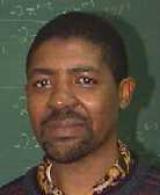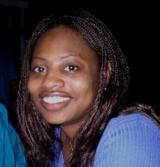|
|
Summary Description Research via group and individual projects are integral part of our program. Exposure to research via seminars, conferences, on-campus and off-campus workshops. Provide worthy students with the necessary mathematical background.
HU Math Department web page
|
|
|
Tools and Resources G-delta seminars (conducted and attended by graduate students). Working on problems with other graduate students. Working one-on-one with faculty advisers. Attendance/participation at math research meetings. Summer research opportunities. Exams designed to test mathematical maturity.
|
|
|
Goals for Students Students doing their PhD work should be able to: Conduct appropriate literature searches.
Master the literature of their specific area of interest.
Pose their own research questions.
Develop an independent research agenda.
Differentiate between peripheral and central additions to the literature.
Look for possible applications of their results.
Make an oral presentation of a research paper.
Write a research paper.
|
|
|
|
Program Context Some good students enter the graduate program without the necessary mathematical background.
We provide those students with a year of introductory courses to fill their knowledge gaps.
|
|

Aziz Yakubu, professor and chair
|
Reflection A
rigorous curriculum coupled with a passionate, dedicated, sensitive,
and diverse group of research mathematicians make it possible to
develop students into researchers. (Reflection of Aziz Yakubu, professor and chair.)
Aziz Yakubu
|
|

Shari Wiley, graduate student
|
Reflection The
faculty at Howard is very involved at helping students find summer
research opportunities. During my first year in graduate school I was
encouraged to take part in an internship program in population dynamics
offered through the National Oceanic and Atmospheric Administration
(NOAA). The work I did throughout my internship resulted in a Master's
Thesis. This opportunity allowed me to develop a network with
researchers and students in other disciplines, learn to ask questions
and turn them into research projects, and gain exposure on the "real
world" applications of my research interests. (Reflection of Shari Wiley, graduate student)
|
|
|
|
How Do We Know? Students in graduate courses are evaluated throughout the semester, and at final exams, following the end of the courses. Currently,
the evaluation for candidacy to the doctorate is done through two
Qualifying Exams. These consist of 2-hour-long written exams, on topics chosen by the students among all the math courses they have attended to date. The Qualifying Exams are offered three times a year at set dates. A
third exam, on the area of a given candidate special interest, is
offered when the candidate is ready to start on the dissertation. Until ten years ago, the two Qualifying Exams were on Real Analysis and Modern Algebra, as in most American graduate programs. The Department is about to discuss the possibility of returning to the classical model of two written exams on the same basic topics for all students, to be taken after one year of graduate courses.
HU Mathematics Graduate Program
The requirements, courses and examinations in the Howard University Graduate program.
|
|
|
Unanswered Questions The Department is about to discuss the redesigning of the Qualifying Exams. We are interested to learn from the experiences of other CID Math Departments on the candidacy requirements.
We also seek their input on the issue of the qualifying exams.
|
|
|
Contact Information Cora Sadosky (faculty member) csadosky@howard.edu Shari Wiley (graduate student) shari_wiley@yahoo.com
|
|
|